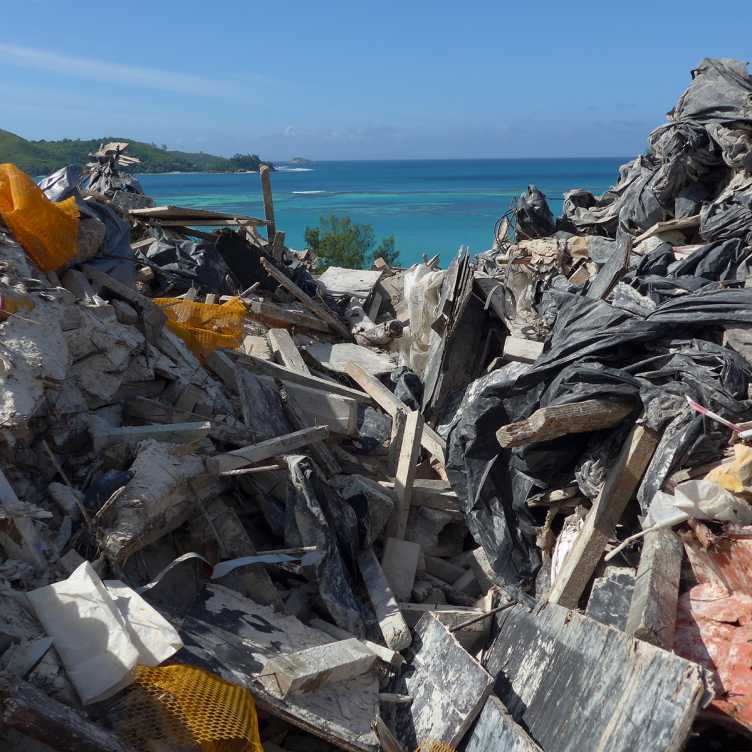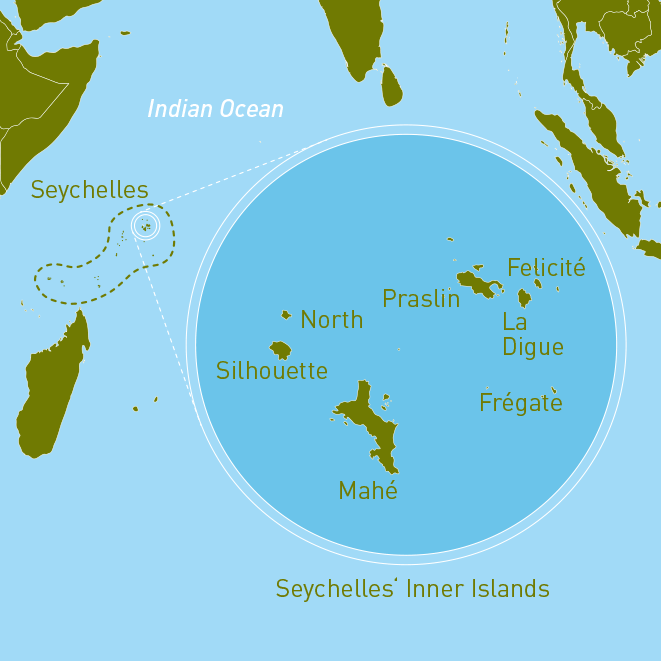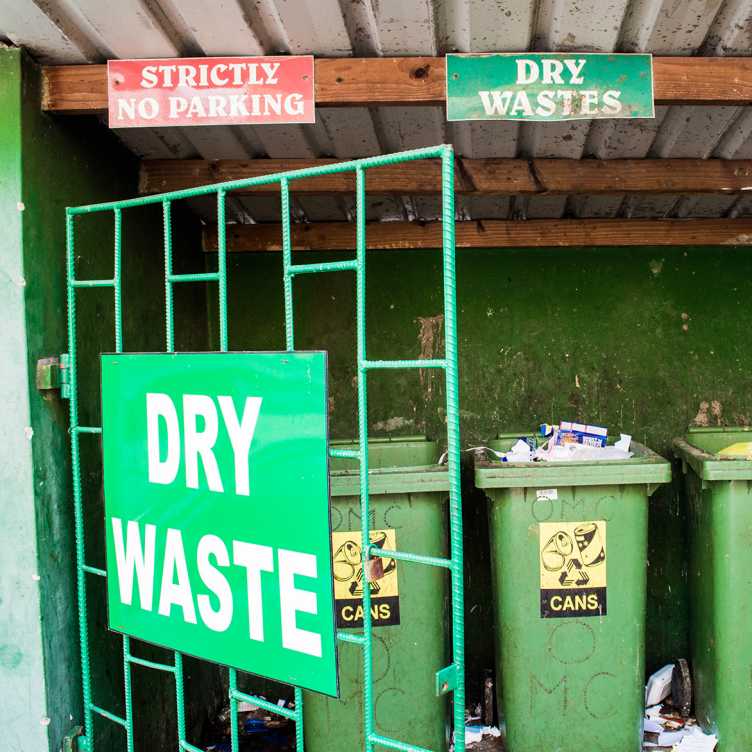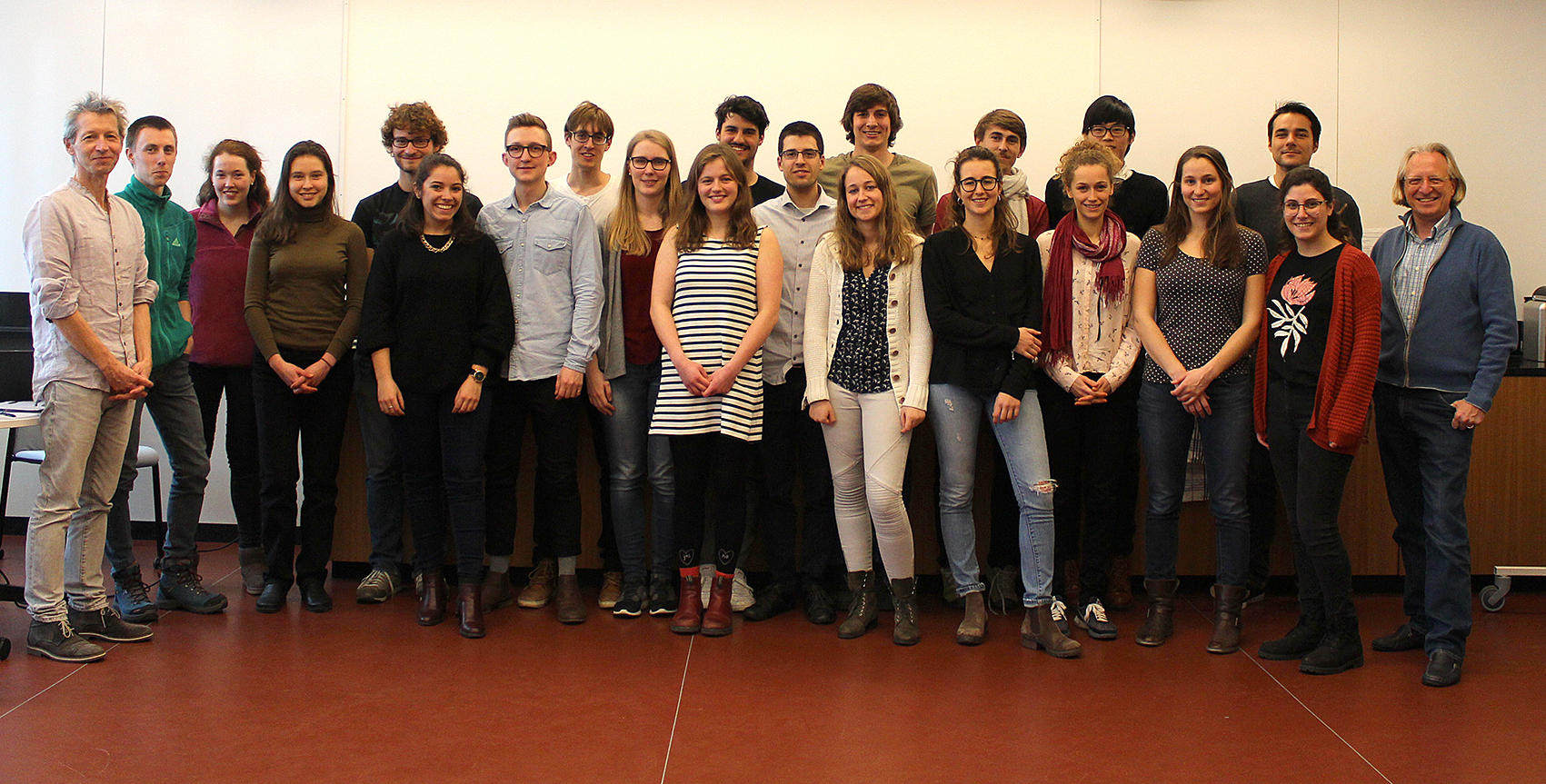CS 2018 "Waste Management in the Seychelles – Pathways for Systemic Change"
Latest news
Report
Krütli P., Nef, D., Zumwald, M., Haupt, M., Harlay, J, & Stauffacher M. (Eds.) (2018). Waste Management in the Seychelles – Pathways for Systemic Change. USYS TdLab Transdisciplinary Case Study 2018. ETH Zürich, USYS TdLab. doi: external page 10.3929/ethz-b-000628953
The Objectives

The learning objectives of the tdCS include (a) understanding a case in its context, (b) knowledge application in the real world, (c) independence in managing research activities, (d) use of transdisciplinary methods, (e) working in intercultural teams, as well as (f) adapting to foreign social, economic, cultural and political settings. In addition to these learning objectives, the case study also aims to meet the needs of its practice partners. This will be achieved by (i) joint problem framing before the study starts, (ii) mid-term validation through local waste experts, (iii) working closely with local government, private sector, community, and by (iv) research collaborations with students at the UniSey.
The Study Area

The Seychelles, located in the southern part of the Indian ocean, is a small state of 450km2 land mass spread over some 115 islands within a sea area of 1.4 million km2. The archipelago shares most of the other Small Island Developing States’ (SIDS) challenges like size; isolation from global markets; limited resources and small domestic markets. Furthermore they are exposed and highly vulnerable to effects of climate change; they increasingly face side effects typical of rapidly developing societies; and they have limited capacities for long-term planning and infrastructure management.
The Topic

Solid waste is a major issue affecting the Seychelles. Almost all goods need to be imported. Waste increased almost 100 percent in the last 15 years. The current waste management practice is landfilling on reclaimed land. All waste types are deposited on the same landfill. Waste is collected on a daily basis by a private company. There is currently no sorting system at the source.
The course builds upon the tdCS 2016 which provided a general overview of the waste management system in the Seychelles. In 2018, the tdCS18 focuses on waste sorting and treatment (incineration, anaerobic digestion, recycling). Again 19 master’s students from ETH from various disciplines (environmental and agricultural science, environmental engineering, spatial planning and infrastructure) and 12 bachelor’s students from UniSey take part.
Students
Master Students from ETH
Pauline Béziat (Env Sciences [ES] - Biogeochemistry and Pollutant Dynamics [BPD]), Marc Chautems (Agr Sciences [AS] - Agroeconomics), Bianca Curcio ([AS] - Plant Science [PS]), Ole Frenzel ([ES] - [BPD]), Cédric Furrer ([AS] - [PS]), Ramon Hess ([ES] - [BPD]), Fiona Hornung (Env Engineering [EE] - Urban Water Management), Lars Kaiser (Spatial Development and Infrastructure Systems), Christy Kehdi ([EE] - Environmental Technologies [ET]), Milena Kessler ([EE] - Resource Management), Lotta Köppel ([AS] - [PS]), Giulia Manzolini ([EE] - [ET]), Tobias Minder ([ES] - Environmental Systems & Policy [ESP]), Matthias Rommelspacher ([EE] - [ET]), Johanna Theilmann ([ES] - [ESP]), Juanita von Rothkirch ([ES] - [ESP]), Simon Wahl ([ES] - [ESP]), Clarissa Wehrli ([EE] - [ET]), Rikushi Yasumatsu ([EE] - exchange studies)
Bachelor students from UniSey
A similar number of students from UniSey will join the team for the field phase in July
Lecturers
- Dr Pius Krütli
- Danny Nef (MSc Environmental Sciences ETH)
- Marius Wälchli (MSc Environmental Sciences ETH)
- Prof. Dr Michael Stauffacher
Experts
- Dr Mélanie Haupt (Ecological Systems Design)
- Dr Christian Pohl
Dates
- Starts on 21 February 2018 and meets every Wednesday 13 – 17h
- 2 block days in Zurich (20 – 21 April)
- 3 block weeks in the Seychelles (2 – 20 July)
First information event for the upcoming transdisciplinary case study in the Spring term 2018
Download the slides from the first information event on December 18, 2017 Download here. (PDF, 1.2 MB)
